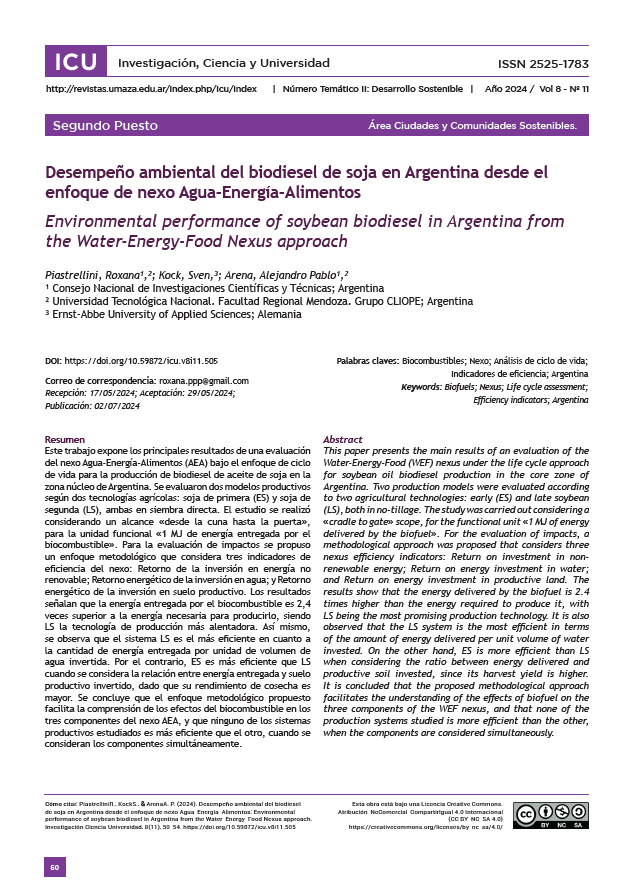Environmental Performance of Soybean Biodiesel in Argentina from the Water-Energy-Food Nexus Approach
Environmental performance of soybean biodiesel in Argentina from the Water-Energy-Food Nexus approach
DOI:
https://doi.org/10.59872/icu.v8i11.505Keywords:
Biofuels; Nexus; Life cycle assessment; Efficiency indicators; ArgentinaAbstract
This paper presents the main results of an evaluation of the Water-Energy-Food (WEF) nexus under the life cycle approach for soybean oil biodiesel production in the core zone of Argentina. Two production models were evaluated according to two agricultural technologies: early (ES) and late soybean (LS), both in no-tillage. The study was carried out considering a "cradle to gate" scope, for the functional unit "1 MJ of energy delivered by the biofuel". For the evaluation of impacts, a methodological approach was proposed that considers three nexus efficiency indicators: Return on investment in non-renewable energy; Return on energy investment in water; and Return on energy investment in productive land. The results show that the energy delivered by the biofuel is 2.4 times higher than the energy required to produce it, with LS being the most promising production technology. It is also observed that the LS system is the most efficient in terms of the amount of energy delivered per unit volume of water invested. On the other hand, ES is more efficient than LS when considering the ratio between energy delivered and productive soil invested, since its harvest yield is higher. It is concluded that the proposed methodological approach facilitates the understanding of the effects of biofuel on the three components of the WEF nexus, and that none of the production systems studied is more efficient than the other, when the components are considered simultaneously.
Downloads

Published
How to Cite
Issue
Section
Categories
License
Copyright (c) 2024 Roxana Piastrellini, Sven Kock, Alejandro Pablo Arena

This work is licensed under a Creative Commons Attribution-NonCommercial-ShareAlike 4.0 International License.





















